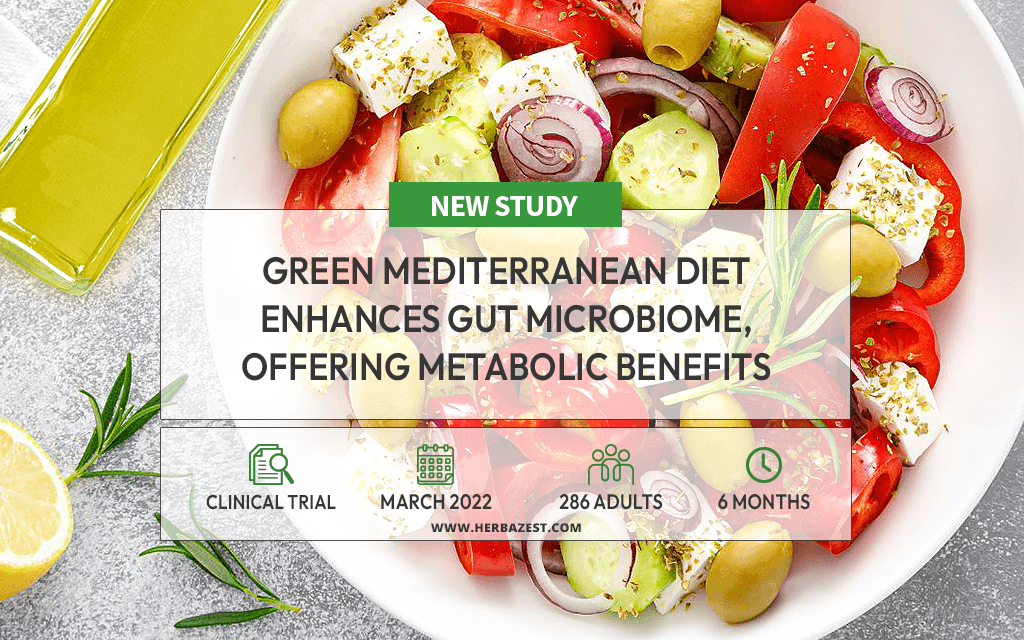The Mediterranean diet, characterized by high plant-based food intake and low red meat consumption, is associated with improved cardiometabolic health.1 Previous research suggested that it influences gut microbiome composition, yet the specific mechanisms remain unclear.
This study explored the effects of a green Mediterranean diet variation on the gut microbiota and its potential role in cardiometabolic health compared to the standard Mediterranean diet regimen.
The Study
The trial enrolled 286 participants above the age of 30, with abdominal obesity or dyslipidemia. They were randomized into three lifestyle intervention groups:
Healthy Dietary Guidelines Group: physical activity + standard nutritional counseling
Mediterranean Diet Group: physical activity + standard nutritional counseling + calorie-restricted diet, rich in vegetables and poultry and fish in place of beef and lamb along with 28 grams of walnuts per day
Green Mediterranean Diet Group: physical activity + standard nutritional counseling + calorie-restricted diet, low in processed and red meat, along with a daily intake of 28 grams of walnuts, 3-4 cups of green tea, and a green shake with 100 g of Wolffia globosa.
Fecal samples were collected for microbiome analysis at baseline and after 6 months at the completion of the trial. Researchers analyzed the effects of the green Mediterranean diet on gut microbiome profile, lipid profile, glycemic control, inflammatory state, and cardiometabolic risk.
The Results
Both Mediterranean diets induced significant changes in gut microbiome composition, with the green Mediterranean diet variation showing more pronounced alterations, including increased abundance of Prevotella (bacteria species normally found in the gut) and enzymes related to branched-chain amino acid (BCAA) degradation, along with reduced Bifidobacterium and BCAA biosynthesis enzymes.
These changes correlated with improvements in body weight, blood pressure, insulin resistance, and other cardiometabolic markers, with the gut microbiome mediating a notable portion of these improvements.
What Does this Mean?
This clinical trial underscores the influence of diet on the gut microbiome and its implications for cardiometabolic health. Enriched with plant components and polyphenols from green tea and Wolffia globosa, the green Mediterranean diet led to significant microbiome changes associated with metabolic benefits.
The microbiome's role in mediating cardiometabolic improvements suggests a potential avenue for personalized dietary interventions targeting gut health to enhance overall well-being. Further research on the potential benefits of the green Mediterranean diet for gut health could lead to novel dietary strategies for managing cardiometabolic diseases and improving overall health and well-being.
Other foods that may enhance gut health include sauerkraut (fermented cabbage), almonds, kombucha (fermented tea beverage), garlic, and ginger.
Sources
- Genome Medicine, The effects of the Green-Mediterranean diet on cardiometabolic health are linked to gut microbiome modifications: a randomized controlled trial, 2022
Footnotes:
- Diabetology & Metabolic Syndrome. (2023). Mediterranean diet lowers all-cause and cardiovascular mortality for patients with metabolic syndrome. Retrieved October 6, 2021, from https://dmsjournal.biomedcentral.com/articles/10.1186/s13098-023-01052-7





